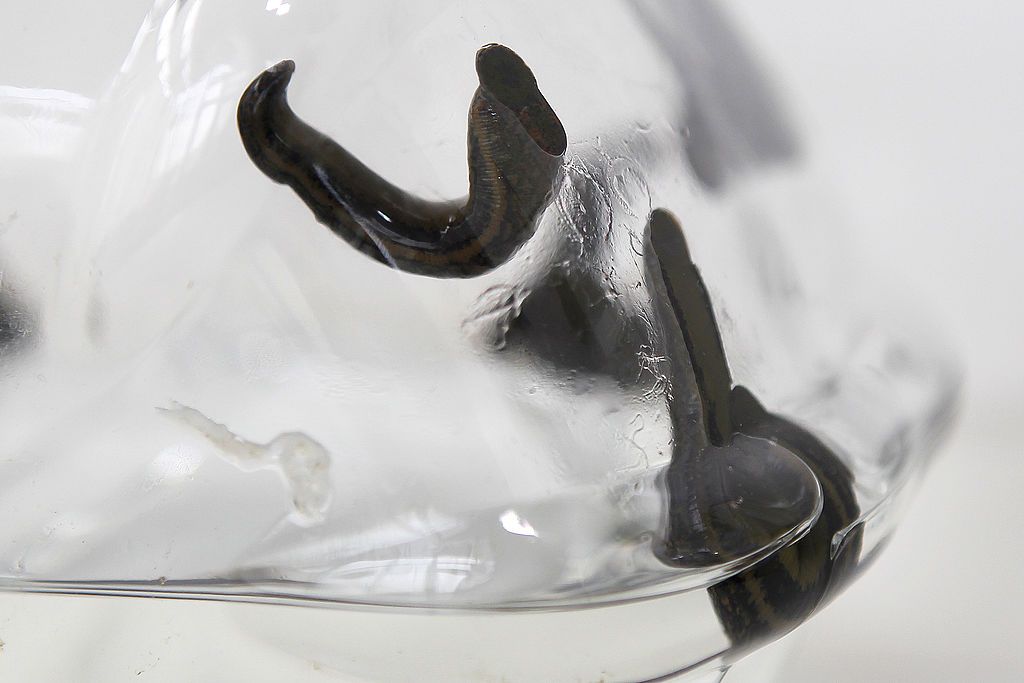
Authorities in Canada have fined a man for attempting to smuggle almost 5,000 live leeches into the country in his in-flight luggage.
According to CBC news, Ippolit Bodounov was caught at Toronto's Pearson International Airport as he tried to smuggle 4,788 wild, live leeches into Canada in a large reusable grocery bag. According to Environment and Climate Change Canada (ECCC) has said he had flown in from Russia.
Gerry Brunet, operations manager for the ECCC's wildlife enforcement directorate, explained that the leech smuggler was stopped after the leeches were detected by sniffer dogs working with border agents.
The leeches were secreted away within 10 damp cloth bags, held within the larger grocery bag. While the ECCC is more regularly involved in stopping animals such as turtles, tortoises and snakes being smuggled, this was the first such incident involving leeches.
"This is our first large-scale illegal leech import," Brunet said.
The majority of the leeches were sent to the Royal Ontario Museum in Toronto, where they were identified as "hirudo verbana," an endangered species of medicinal leech. A separate batch of leeches, 240 of the animals, were sent on to the American Museum of Natural History in New York, where a DNA sequencing of their stomach contents showed they were caught in the wild.
Sebastian Kvist, curator of invertebrate zoology at the Toronto museum, explained that leeches had been used in European medicine since the Middle Ages. Today, the animals' only proven medical benefit, he said, is in stimulating blood flow to reattached fingers and toes, and in some cases, in deterring strokes. Medicinal leeches can fetch between $8 to $20 per animal in Canadian dollars ($6 to $14 in the U.S.), according to Kvist.
Practitioners of alternative medicine also claim the animals can treat conditions as varied as arthritis and male pattern baldness. However, there is no evidence that the blood-sucking invertebrates can treat these conditions.
On May 24 Bodounov pleaded guilty to breaking the Wild Animal and Plant Protection and Regulation of International and Interprovincial Trade Act. He received a $15,000 fine ($11,000 in U.S. dollars) for his crime and has been slapped with a year-long ban on importing, exporting and possessing any animals regulated through the Convention on International Trade in Endangered Species of Wild Fauna and Flora.
Amazingly, all the leeches survived the trip, Kvist said.
Uncommon Knowledge
Newsweek is committed to challenging conventional wisdom and finding connections in the search for common ground.
Newsweek is committed to challenging conventional wisdom and finding connections in the search for common ground.
About the writer
Callum Paton is a staff writer at Newsweek specializing in North Africa and the Middle East. He has worked freelance ... Read more
To read how Newsweek uses AI as a newsroom tool, Click here.








